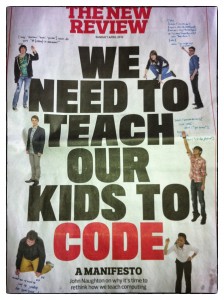This morning’s Observer column.
In the beginning, webpages were simple pages of text marked up with some tags that would enable a browser to display them correctly. But that meant that the browser, not the designer, controlled how a page would look to the user, and there’s nothing that infuriates designers more than having someone (or something) determine the appearance of their work. So they embarked on a long, vigorous and ultimately successful campaign to exert the same kind of detailed control over the appearance of webpages as they did on their print counterparts – right down to the last pixel.
This had several consequences. Webpages began to look more attractive and, in some cases, became more user-friendly. They had pictures, video components, animations and colourful type in attractive fonts, and were easier on the eye than the staid, unimaginative pages of the early web. They began to resemble, in fact, pages in print magazines. And in order to make this possible, webpages ceased to be static text-objects fetched from a file store; instead, the server assembled each page on the fly, collecting its various graphic and other components from their various locations, and dispatching the whole caboodle in a stream to your browser, which then assembled them for your delectation.
All of which was nice and dandy. But there was a downside: webpages began to put on weight. Over the last decade, the size of web pages (measured in kilobytes) has more than septupled. From 2003 to 2011, the average web page grew from 93.7kB to over 679kB.
Quite a few good comments disagreeing with me. In the piece I mention how much I like Peter Norvig’s home page. Other favourite pages of mine include Aaron Sloman’s, Ross Anderson’s and Jon Crowcroft’s. In each case, what I like is the high signal-to-noise ratio.


